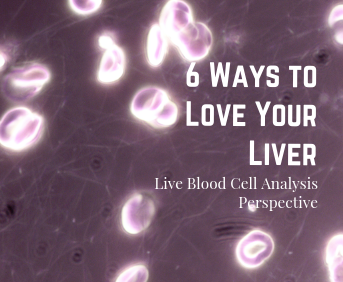How Live Blood Analysis Can Help Teens Understand and Improve Acne Naturally
Teen acne can be frustrating, painful, and confusing — not just for teens, but for
parents, too. While skincare routines are helpful, acne often has internal root causes
that show up long before they appear on the skin. That’s where Live Blood Analysis (LBA)
can become a powerful, educational tool.
LBA gives a real-time look at what’s happening inside the body by examining a single
drop of blood under a darkfield or phase-contrast microscope. For teens, seeing their
own blood on a screen is not only interesting it can be deeply motivating. It shows them
how lifestyle, nutrition, hydration, stress, and sleep are directly connected to their
skin.
Shielding Against Lyme Disease and Tick-Transmitted Illnesses
In the tranquil embrace of nature, there exists a tiny yet potent threat – ticks! While
these tiny creatures may seem innocuous, they pose a significant risk to our health,
transmitting diseases such as Lyme and other co-infections. As we get into warmer
weather and more outdoor adventures, adopting tick-safe living strategies is crucial to
prevent these illnesses from taking hold.
One of the most common things we see during a live blood analysis appointment is
dehydrated cells. These cells look like raisins instead of healthy round red blood
cells, making it harder for them to move freely through our plasma.
Water makes up at least 60 per cent of our body weight and is critical for our body’s
overall function and health. Water helps our blood to move better, taking nutrients to
our cells and tissues. It helps us to digest food better, getting more nutrients out of
the food while moving the food more easily through our intestines. Water helps to
regulate our body temperature. It helps with detoxifying dangerous toxins from our body
and assists our kidneys to work more efficiently.
Top 6 suggestions to help prevent heart disease!
Heart disease is the number one killer of women worldwide and the leading cause of
premature death in women in Canada. Cardiovascular disease affects 1 out of 3 women
globally. I don’t mean to start this off all gloomy and somber. Unfortunately, women are
understudied, misdiagnosed and there is a lack of awareness when it comes to their
cardiovascular health. That is the bad news! Now, are you ready for the good news? 80%
of woman’s risks are within her control and heart disease can be largely preventable.
Wow, Thank Goodness! Let’s have a look at the top 6 suggestions to help your own
cardiovascular health.
Live blood is an extremely useful tool for testing many root causes of health issues in
our bodies. One thing a live blood analyst (LBA) can see in your live blood is cellular
damage or free radical damage, also known as oxidative stress.
Oxidative stress is when the body’s cells become imbalanced with free radicals (reactive
oxygen species) compared to the number of antioxidants. Having too many free radicals in
the body can cause cellular damage and even cell destruction. Too many free radicals
will cause tissues to start degenerating and even damage the cell DNA.
Tips on Preventing Viruses and the Top 7 Antivirals
Viruses come in all different shapes and sizes and they affect us all differently. Some
can be more serious while some are just your common colds. The elderly, young children
and those with compromised immune systems can be at a greater risk of contracting
viruses. The good news is that by incorporating the following prevention tips and
incorporating anti-viral foods in our diet we can decrease the likelihood of catching
these viruses.
6 Ways To Love Your Liver

In Live Blood Cell Analysis we are always interested in how the liver is preforming as
it has many functions that impact our health. There are many ways to support your liver,
but first let’s take some time to understand it and its importance.
As technicians at Microcell Sciences, we often see patients/clients that are more acidic
rather than alkaline. The goal for a healthy body is to keep your body’s PH level as
close to 7.4 as possible.
Our bodies and blood have a PH level of 7.35 to 7.45; slightly alkaline. It is a
continuous fight for your body’s organs, tissue and fluids to try to neutralize acids in
order to maintain the proper PH level.
Foods and stress play a huge role in altering the body’s PH. People are consuming too
many acid forming foods, such as dairy, grains, meats, processed foods, sodas, coffees
and sweets.
Our liver is the organ in our body that naturally detoxifies our system of harmful
toxins, chemicals and other waste that we do not want or need. The liver has over 500
functions in the body and without it, the body cannot survive. The liver plays a major
role in the digestion system. It produces bile, detoxifies drugs and alcohol, allows
degradation of hormones, and the manufacturing of many vital substances like
cholesterol, blood proteins and enzymes. The liver is involved in processing and
metabolizing every class of nutrient in the body. With the overload of chemicals now
present in our foods, environment and cleaning products, this very important organ can
become overwhelmed and sluggish. It’s extremely necessary for us to support our liver
with key nutrients from foods and supplements that can help it function at its' optimal
state.
WET BASEMENT? Mold and bacteria may cause allergies or more severe health
conditions.
Like the steady beat of a drummer, heavy rain pelts the roof. Minutes later, the water
streams into the basement of your home and hours later, humidity builds and the smell of
must rises to the main floor of your house.
Basement flooding is devastating and may cause a lingering moisture problem. This may
result in serious health implications, including mold and other types of bacteria.
Winter getaways are definitely the best reprise from our harsh winter months. Tropical
islands and Asian destinations; a stress relief that we so greatly need after being
stuck in the house during cold, dark months of the year. However, have you ever returned
back from an amazing holiday feeling worse than when you left? Did you experience
traveler's diarrhea or digestive issues during or after the trip? There’s a high
probability you may have contracted some undesirable pathogens from water or food
consumed in these foreign destinations.


